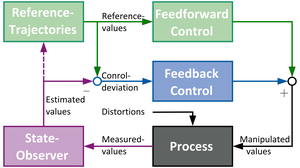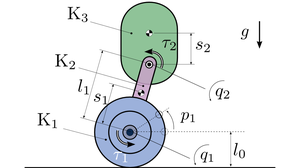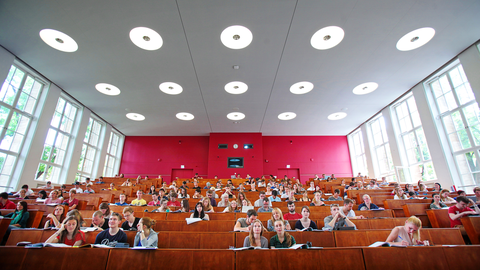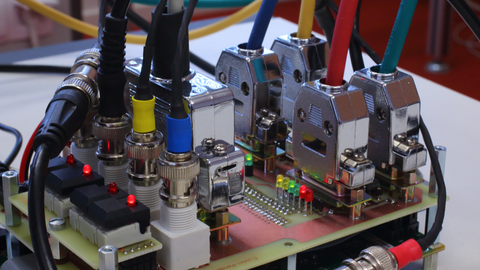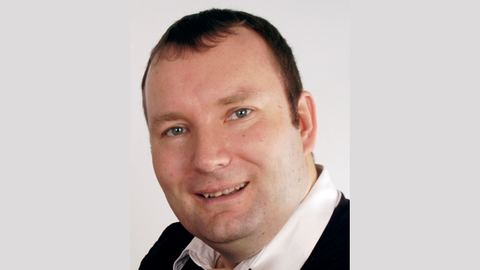Control engineering
The main task of control systems is the targeted and automatic control of technical processes in all fields of engineering - from chemical engineering to electrical drive technology and high-precision machine tools to applications in robotics. Control engineering makes use of different tools and methods of engineering and advanced mathematics as well as of physics and chemistry. Thus, it is a highly interdisciplinary science. Methods of control engineering play a key role in the "Industry 4.0". The focus of the institute in teaching and research is set in an appropriate manner.
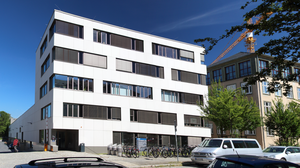 © J.Winkler
© J.Winkler
The profile of the institute
The Institute of Control theory is working on the systematic design of control and monitoring devices for processes based on their mathematical models. The main focus is on the mathematical modeling, the theory and application of flatness based methods for lumped and distributed parameter systems and the observer design for nonlinear systems.
In university education it is responsible for the training in control technology in the degree programs of electrical engineering, mechatronics and renewable energy systems. Offered are a total of eleven lectures plus exercises, two seminars and a two- and two one-semester laboratories.
The institute is headed by Prof. Dr.-Ing. habil. Dipl.-Math. Klaus Röbenack and currently employs 14 staff members. It was founded in 1992 with Prof. Dr.-Ing. Dr. rer. nat. Kurt Reinschke as director.

